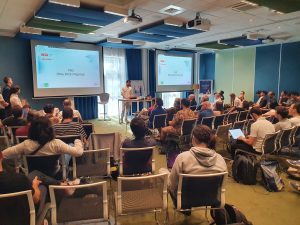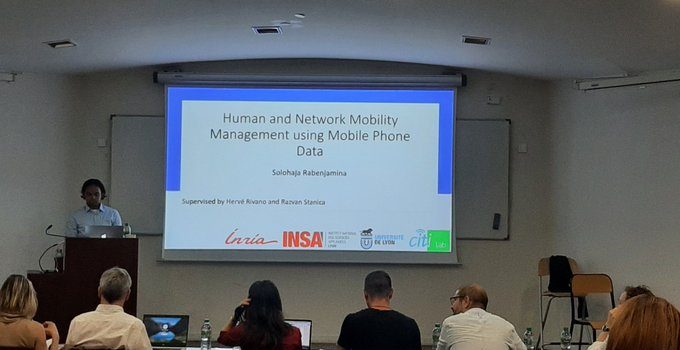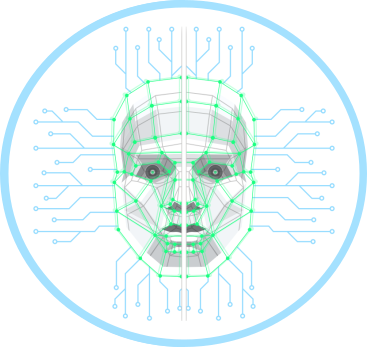Speaker: François is Prof. at University of Sherbrooke (Canada), and leading the IntroLab at the 3IT institute.
Date: 26/05/2023
Time: 11h00
Place: Amphi Chappe/Lamarr, 6 avenue des arts, La Doua Campus
Title: Working Toward Human-Robot Symbiosis
Abstract: Human-robot symbiosis implies developing robotic systems that can collaborate with humans in open and ‘messy’ conditions, meaning unpredictable real-life settings, such as those found in assistive healthcare and work environments. Achieving human-robot symbiosis requires humanizing the sensing, perception, reasoning, and actuating capabilities based on evaluating human safety, well-being, acceptability, and usability. Researchers need to adopt a holistic approach enabling robots to seamlessly ‘see, hear and be’ in everyday settings, and design robots that are situationally balanced, in which complexity levels of sensory, motor, and artificial intelligence (AI)/cognitive capabilities are matched with the environment and people. This presentation addresses an overview of interactive robots and systems developed at IntRoLab, Université de Sherbrooke, involving compliant actuators, assistive robot platforms, telepresence robots, vision-based SLAM, drone intrusion, weed remoal robot, robot companion and robotic living labs.
Bio: François Michaud, Ph.D., is an engineer and full professor in the Department of Electrical and Computer Engineering at the Université de Sherbrooke, in Québec Canada. Holder of the Canada Research Chair in Mobile Robotics and Intelligent Autonomous Systems from 2001 to 2011, his research activities are aimed at integrating intelligent autonomous robotic systems into everyday operating conditions, to improve the well-being of people. His expertise is in human-robot interaction, assistive robotics, telepresence robotics, robot design and cognitive robotics. He has extensive experience in initiating and conducting interdisciplinary and intersectoral research projects involving collaborators in physiotherapy, occupational therapy, agriculture, child psychiatry, education, cognitive science, manufacturing, arts and automotive. He has published over 225 peer-reviewed papers in journals and international conferences (h-index 50), has been awarded 8 patents, has five significant distributed open source (software and hardware) contributions used by the robotics community, and has received funding over 50 M$ CAD supporting a broad range of research initiatives. He is the founding director of the Interdisciplinary Institute for Technological Innovation (3IT) (2008 – 2015), co-founder of Robotique FIRST Quebec (2010 – ), founder of Quebec Strategic Cluster INTER (Interactive Technologies in Rehabilitation Engineering) (2011 – ), and co-founder of a graduate training program CoRoM (COllaborative RObotics for Manufacturing). He is the Editor-in-Chief of Springer Nature Current Robotics Reports. He is also the founding director of the Bachelor of Robotics Engineering Program (2017 – ) at the Université de Sherbrooke, the first and only one in Canada.












